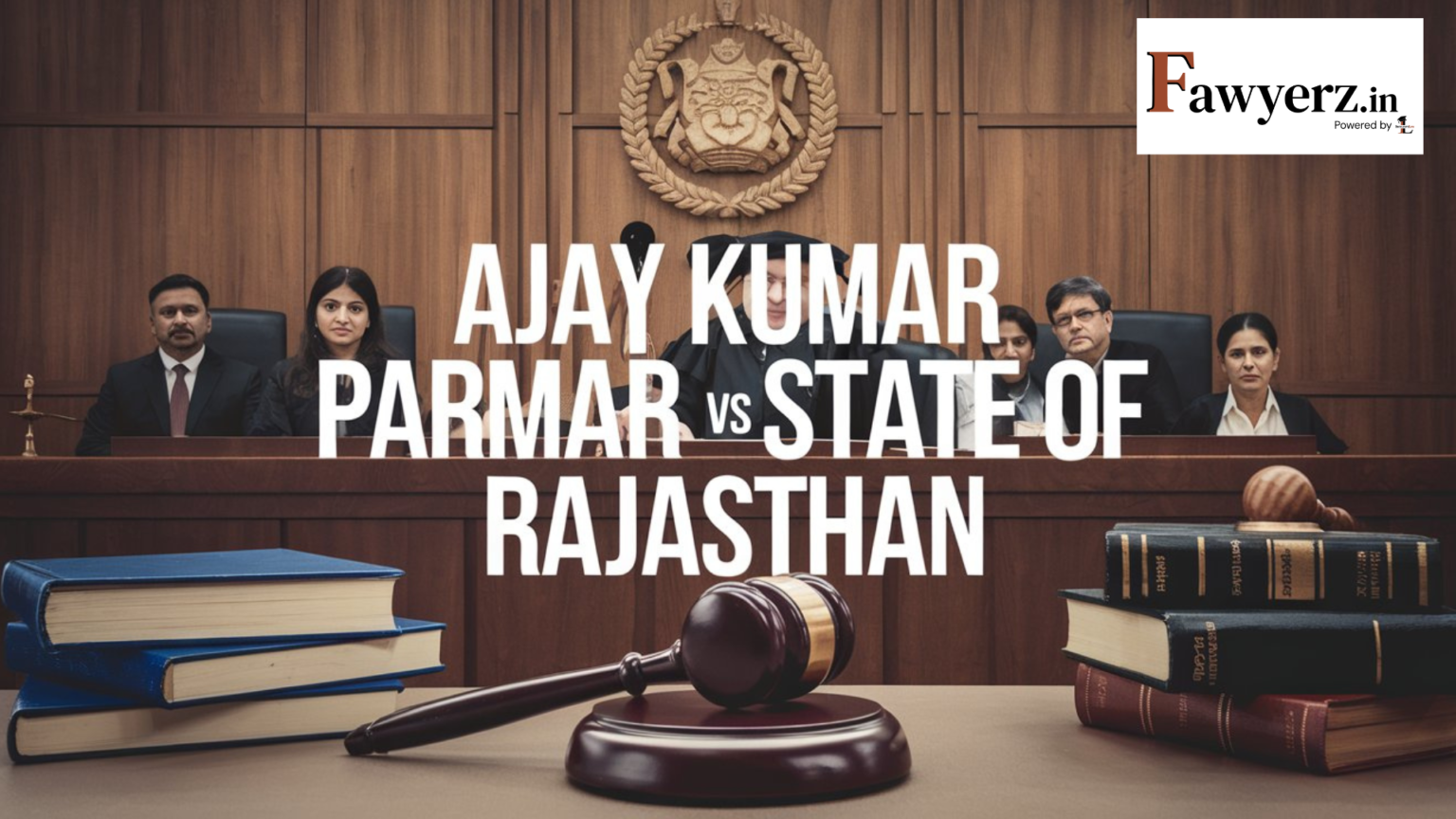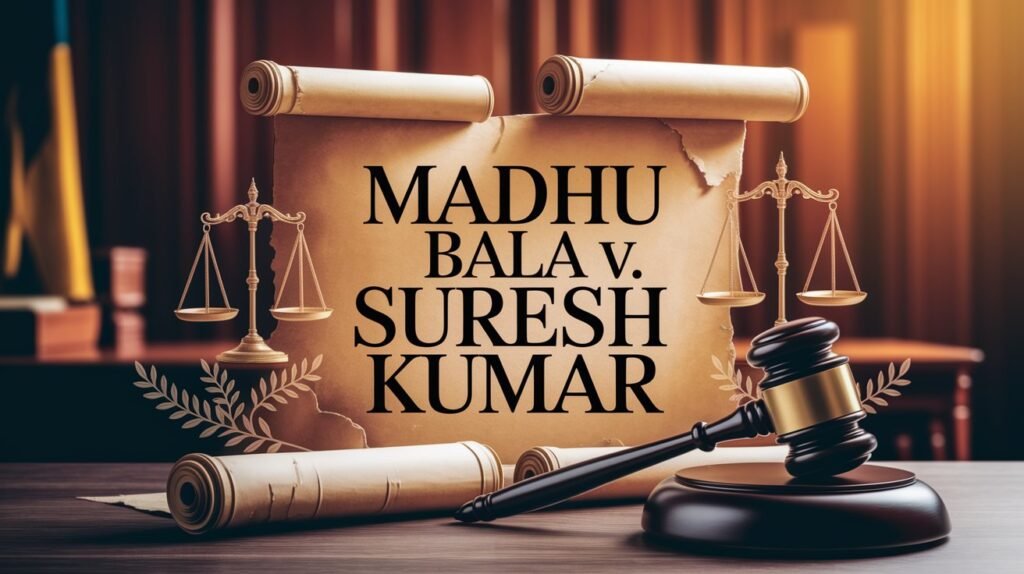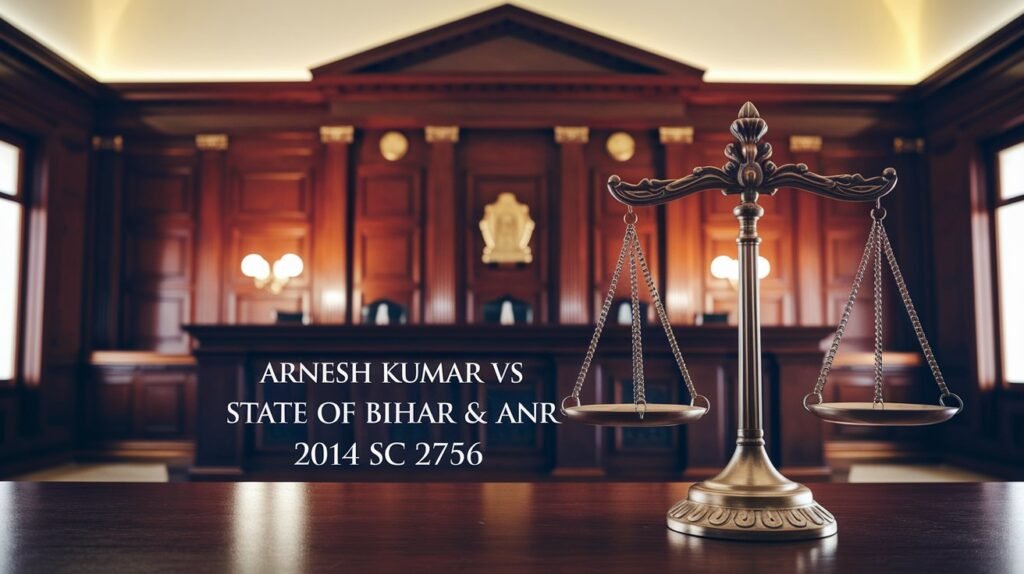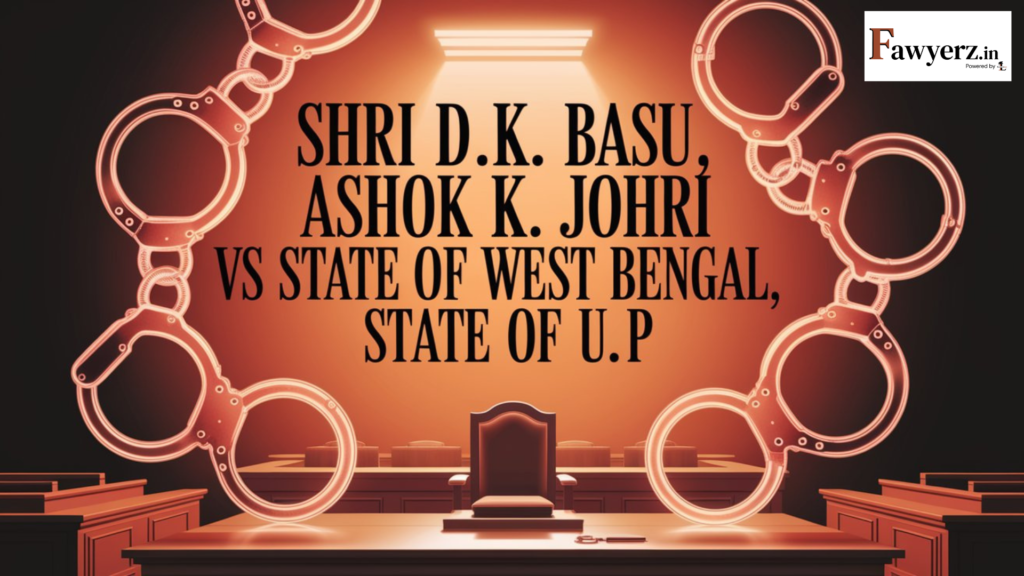Ajay Kumar Parmar vs State of Rajasthan 2013 (Case Summary)

The case, Ajay Kumar Parmar vs State of Rajasthan, concerns the procedural and jurisdictional limits of a Judicial Magistrate in cases exclusively triable by the Court of Sessions. The appeal arose from the Magistrate’s discharge of the accused based on a Section 164 Cr.P.C. statement, highlighting the boundaries before the case is committed to a Sessions Court.
Table of Contents
ToggleFacts of Ajay Kumar Parmar vs State of Rajasthan
- An FIR was lodged by Pushpa against the appellant, alleging rape and unlawful confinement.
- In her statement under section 161 before the Investigating Officer, she claimed that the appellant lured, raped and confined her.
- However, in her Section 164 Cr.P.C. before the Magistrate, she retracted her allegations.
- Following the investigation, a charge sheet was filed. However, the Judicial Magistrate, Sheoganj, relied on the Section 164 Cr.P.C. statement and declined cognizance under Sections 376 and 342 IPC. Consequently, the Appellant was Acquitted.
Issues framed
- Whether the Judicial Magistrate had jurisdiction to discharge or acquit the accused in a case exclusively triable by the Court of Sessions?
- Whether the Judicial Magistrate could consider the prosecutrix’s Section 164 Cr.P.C. statement at the stage of taking cognizance?
Subordinate Court Judgment
Judicial Magistrate, Sheoganj, relying on the Section 164 Cr.P.C. statement, declined cognizance under Sections 376 and 342 IPC, acquitted the appellant, and criticized the investigation.
The Sessions Court ruling in favour of the Public Prosecutor held that the Judicial Magistrate lacked jurisdiction to discharge or acquit the Appellant as the offenses under Sections 376 and 342 IPC were exclusively triable by the Sessions Court. The Appellant being aggrieved by the order of the Sessions Court, he appealed to the Hon’ble Rajasthan High Court.
The Rajasthan High Court upheld the order of the Sessions Court. The Appellant thereafter, appealed to the Hon’ble Supreme Court of India.
Judgment of Ajay Kumar Parmar vs State of Rajasthan
The Hon’ble Supreme Court analyzed the allegations under Sections 376 and 342 IPC, along with procedural compliance under Sections 161, 164, 190 and 207-209 Cr.P.C. It also examined the discharge plea under Section 227 Cr.P.C. and the admissibility of handwriting analysis under Sections 45, 47, and 73 of the Indian Evidence Act, 1872.
The Hon’ble Supreme Court examined the application of the Code of Criminal Procedure, 1973 (Cr.P.C.) with respect to the jurisdiction of Magistrates in cases exclusively triable by the Court of Sessions. The Court reaffirmed the principle that upon the filing of a charge sheet in such cases, the Magistrate’s sole duty is to commit the case to the Court of Sessions under Section 209 Cr.P.C. The Court emphasised that a Magistrate lacks jurisdiction to engage in a merit-based assessment of evidence or consider defence materials at this stage, restricting their role to ascertaining whether the police report discloses a Sessions-triable offence.
The Court further analyzed the scope of a Magistrate’s power under Section 190 Cr.P.C. to refuse cognizance. While acknowledging that a Magistrate may decline cognizance if the material on record does not disclose an offence, the Court clarified that this power does not extend to conducting a mini-trial. The Magistrate is not empowered to weigh evidence or assess its reliability at this stage.
The Hon’ble Supreme Court dismissed the appeal, upholding the judgment of the Rajasthan High Court and the order of the Sessions Court. Consequently, the order of the Judicial Magistrate, Sheoganj, acquitting the appellant was set aside.
The Supreme Court reiterated that the Judicial Magistrate lacked jurisdiction to discharge the appellant for offences exclusively triable by the Court of Sessions and was mandated to commit the case to that court as per the provisions of the Code of Criminal Procedure. The matter was thus directed to proceed before the Court of Sessions in accordance with law.





